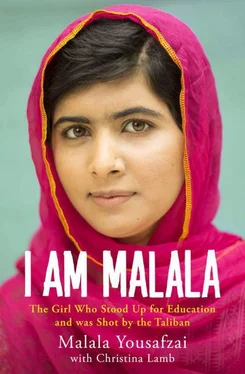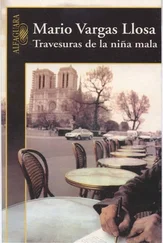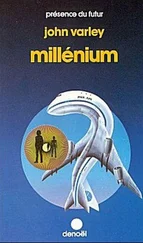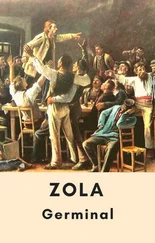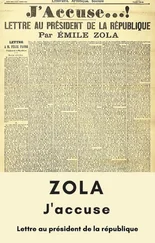My father’s dislike of Baba’ s frugality has made him a very generous man both materially and in spirit. He became determined to end the traditional rivalry between him and his cousins. When his headmaster’s wife fell ill, my father donated blood to help save her. The man was astonished and apologised for having tormented him. When my father tells me stories of his childhood, he always says that though Baba was a difficult man he gave him the most important gift – the gift of education. He sent my father to the government high school to learn English and receive a modern education rather than to a madrasa, even though as an imam people criticised him for this. Baba also gave him a deep love of learning and knowledge as well as a keen awareness of people’s rights, which my father has passed on to me. In my grandfather’s Friday addresses he would talk about the poor and the landowners and how true Islam is against feudalism. He also spoke Persian and Arabic and cared deeply for words. He read the great poems of Saadi, Allama Iqbal and Rumi to my father with such passion and fire it was as if he was teaching the whole mosque.
My father longed to be eloquent with a voice that boomed out with no stammer, and he knew my grandfather desperately wanted him to be a doctor, but though he was a very bright student and a gifted poet, he was poor at maths and science and felt he was a disappointment. That’s why he decided he would make his father proud by entering the district’s annual public speaking competition. Everyone thought he was mad. His teachers and friends tried to dissuade him and his father was reluctant to write the speech for him. But eventually Baba gave him a fine speech, which my father practised and practised. He committed every word to memory while walking in the hills, reciting it to the skies and birds as there was no privacy in their home.
There was not much to do in the area where they lived so when the day arrived there was a huge gathering. Other boys, some known as good speakers, gave their speeches. Finally my father was called forward. ‘I stood at the lectern,’ he told me, ‘hands shaking and knees knocking, so short I could barely see over the top and so terrified the faces were a blur. My palms were sweating and my mouth was as dry as paper.’ He tried desperately not to think about the treacherous consonants lying ahead of him, just waiting to trip him up and stick in his throat, but when he spoke, the words came out fluently like beautiful butterflies taking flight. His voice did not boom like his father’s, but his passion shone through and as he went on he gained confidence.
At the end of the speech there were cheers and applause. Best of all, as he went up to collect the cup for first prize, he saw his father clapping and enjoying being patted on the back by those standing around him. ‘It was,’ he says, ‘the first thing I’d done that made him smile.’
After that my father entered every competition in the district. My grandfather wrote his speeches and he almost always came first, gaining a reputation locally as an impressive speaker. My father had turned his weakness into strength. For the first time Baba started praising him in front of others. He’d boast, ‘Ziauddin is a shaheen’ – a falcon – because this is a creature that flies high above other birds. ‘Write your name as “Ziauddin Shaheen”,’ he told him. For a while my father did this but stopped when he realised that although a falcon flies high it is a cruel bird. Instead he just called himself Ziauddin Yousafzai, our clan name.
3

Growing up in a School
MY MOTHER STARTED school when she was six and stopped the same term. She was unusual in the village as she had a father and brothers who encouraged her to go to school. She was the only girl in a class of boys. She carried her bag of books proudly into school and claims she was brighter than the boys. But every day she would leave behind her girl cousins playing at home and she envied them. There seemed no point in going to school just to end up cooking, cleaning and bringing up children, so one day she sold her books for nine annas, spent the money on boiled sweets and never went back. Her father said nothing. She says he didn’t even notice, as he would set off early every morning after a breakfast of cornbread and cream, his German pistol strapped under his arm, and spend his days busy with local politics or resolving feuds. Besides he had seven other children to think about.
It was only when she met my father that she felt regret. Here was a man who had read so many books, who wrote her poems she could not read, and whose ambition was to have his own school. As his wife, she wanted to help him achieve that. For as long as my father could remember it had been his dream to open a school, but with no family contacts or money it was extremely hard for him to realise this dream. He thought there was nothing more important than knowledge. He remembered how mystified he had been by the river in his village, wondering where the water came from and went to, until he learned about the water cycle from the rain to the sea.
His own village school had been just a small building. Many of his classes were taught under a tree on the bare ground. There were no toilets and the pupils went to the fields to answer the call of nature. Yet he says he was actually lucky. His sisters – my aunts – did not go to school at all, just like millions of girls in my country. Education had been a great gift for him. He believed that lack of education was the root of all Pakistan’s problems. Ignorance allowed politicians to fool people and bad administrators to be re-elected. He believed schooling should be available for all, rich and poor, boys and girls. The school that my father dreamed of would have desks and a library, computers, bright posters on the walls and, most important, washrooms.
My grandfather had a different dream for his youngest son – he longed for him to be a doctor – and as one of just two sons, he expected him to contribute to the household budget. My father’s elder brother Saeed Ramzan had worked for years as a teacher at a local school. He and his family lived with my grandfather, and whenever he saved up enough of his salary, they built a small concrete hujra at the side of the house for guests. He brought logs back from the mountains for firewood, and after teaching he would work in the fields where our family had a few buffaloes. He also helped Baba with heavy tasks like clearing snow from the roof.
When my father was offered a place for his A Levels at Jehanzeb College, which is the best further education institution in Swat, my grandfather refused to pay for his living expenses. His own education in Delhi had been free – he had lived like a talib in the mosques, and local people had provided the students with food and clothes. Tuition at Jehanzeb was free but my father needed money to live on. Pakistan doesn’t have student loans and he had never even set foot in a bank. The college was in Saidu Sharif, the twin town of Mingora, and he had no family there with whom he could stay. There was no other college in Shangla, and if he didn’t go to college, he would never be able to move out of the village and realise his dream.
My father was at his wits’ end and wept with frustration. His beloved mother had died just before he graduated from school. He knew if she had been alive, she would have been on his side. He pleaded with his father but to no avail. His only hope was his brother-in-law in Karachi. My grandfather suggested that he might take my father in so he could go to college there. The couple would soon be arriving in the village as they were coming to offer condolences after my grandmother’s death.
Читать дальше
